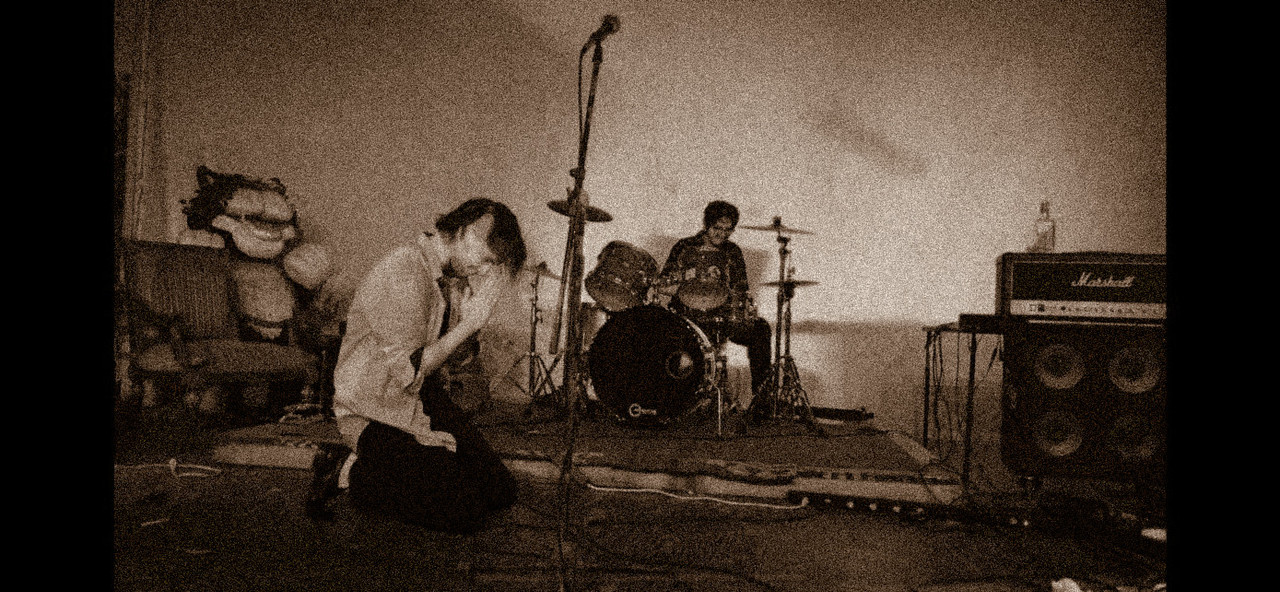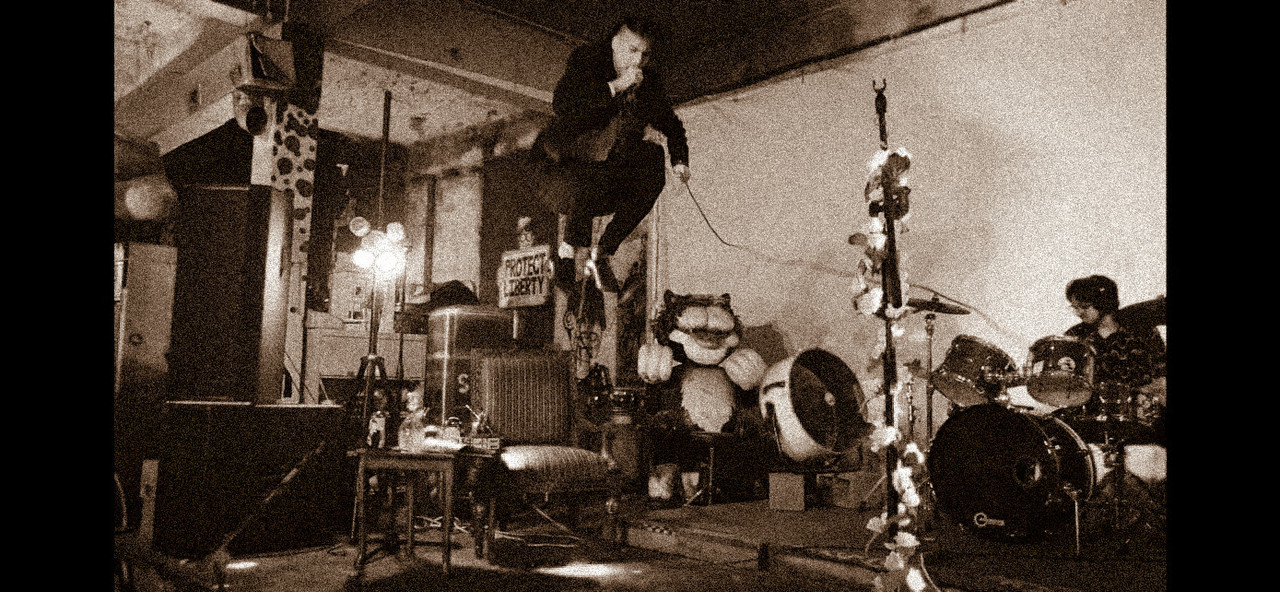Artist Interview: When In May
When In May is a band that's been making waves with their unique sound and unapologetic authenticity. From their debut EP "Lying About Silly Things" to their upcoming third release, this genre-fluid band has cultivated a sound that is both elegant and messy, earning them a global following and critical acclaim. Join us as we dive into the creative process, inspirations, and future aspirations of When In May.
Q. "When In May" is such a unique name. What's the story behind it?
A. The name "When In May" comes from a short poem: "April showers bring forth May flowers." Therefore, our name both asks the question and makes the statement: "When In May." We use the month as a status update for our fans, letting them know we are in a new season as a band.
Q. Your music is described as "genre-fluid, elegant but messy intelligence." Can you elaborate on how you cultivate this unique sound, and what genres do you find yourselves most drawn to for inspiration?
A. We lean more towards pop rock overall, but we take pride in being that band you can place on shuffle and have your friends ask, "Is this the same band?" As we write the soundtrack of our youth, we let the song and the sounds guide us on a new journey every time.
Q. Your debut EP, "Lying About Silly Things," had over 175k streams across 90 countries. What do you attribute to its massive success, and how did it feel to see such a global reach for your first release?
A. We never planned for this success. I wanted this band and project to objectively be my own favorite band in every possible way. With the fans came hate, and with hate, we chose to spin that attention into making ourselves inescapably but also undeniably your friend's favorite small indie band.
Q. Following up on the success of your debut, how did the reception to your sophomore EP, "Dynamic In The Morning," compare? Did you feel any pressure to live up to the hype, and how did you approach that?
A. I took it as a challenge when creating our second extended play. Challenging myself, my band, our designers, and our listeners. We can’t reinvent the wheel, but how can we make it roll smoother? We simply make songs that we love. That's how we got here, and it’s how we will continue.
Q. You've been featured on 25 different radio stations in the US and UK. How important is radio play to you as an artist, especially given your focus on reaching diverse audiences?
A. Radio play is indeed important. It’s a prize to have worked so hard and to know the casual radio listener will hear us as a part of their everyday life. We live in a digital age where streaming rules all. Radio play is more or less our sign to continue pushing forward. After all, Queen said it best even back in 1984: "You had your time, you had the power. You've yet to have your finest hour...Radio, someone still loves you." Having the reach of such a wide range of listeners is so humbling and heartwarming all at the same time.
Q. Your band has been recognized in 50+ different articles, blogs, magazines, and more. What aspects of your band's unique identity, songwriting, or process do you think resonate most with critics and fans alike?
A. We’re unapologetically and earnestly ourselves. Love us or hate us, we will never change. We believe outcasts love us because we are as well. We are your best friends. No matter where you are, we are there with you.
Q. The band sings about "themes of heartbreak, ego, death, and most importantly, of course, the singer's ‘genuine intent.’" How do you balance these weighty topics with your "believable lyricism" and still maintain an intimate connection with your listeners?
A. We try to write songs you can listen to despite the day you've had. Like any great movie, it takes itself seriously but allows in moments of witty humor to break tension. We are pretentious and we own it. We show that it’s okay to be who you want to be, and we’ve seen our audience grow because of this authenticity.
Q. Your discography spans genres like neogaze, pop punk, alt-rock, jazz, indie rock, contemporary orchestra, R&B, folk, and more. What's the collaborative process like when you're blending such diverse musical styles into a cohesive sound?
A. I’m lucky enough as the lead singer and writer to have a band to trust and support my writing. We don’t want to make any sequels to our songs, and we don’t want our listeners to get bored either. You ask us what genre we are, and we simply answer "yes."
Q. How do you approach the visual aspect of your music, whether in live performances, music videos, or album art?
A. We truly believe in "eras." They showcase our growth and the band’s overall evolution while appealing to all the senses. We challenge ourselves and ask, "If you didn’t know who When In May is, how can this artwork make you pick up our record?" Presentation, art, color, layers, imagery, and finally sound. We all remember when we first discovered bands we would follow for years to come. So whether new fans or old, you’ll know what era you fell in love with us.
Q. Your upcoming 3rd EP is set to release in 2026. Can you give us any hints about what fans can expect from this new material? Are there any new directions or themes you're exploring?
A. This next EP is our most earnest and most politically introspective extended play to date. Social references about the rumination of celebrity affairs mold the themes presented and what it’s like to hate living online, sadly an essential of modern life and aspiring artists.
Q. Can you elaborate on your perspective on the current state of rock music and where you see When In May fitting in?
A. Rock 'n' roll isn’t dead, or maybe it always was, but it’s over-polished, corporate safe media now. There’s only a few bands that are an exception. When In May doesn’t need to fit in. We demand our attention and flowers from the rest of the media.
Q. You're currently working to tour in 2026. What are you most looking forward to about hitting the road, and what kind of live experience do you aim to create for your audiences?
A. When In May on the road is perhaps a tad dangerous, but we most look forward to the connections with new fans and inspirations we can gather in new places. We plan on delivering our stage play to each stage and city, no matter how big or small, for an unforgettable performance. It should, and does from our experience, challenge our audience's expectation for a live performance from an indie band.
Q. What's the band's favorite way to connect outside of working on music?
A. Our favorite way to connect is through a libation, or a few more likely. Mixed drinks, cigars, and a horribly made movie.
Q. How has the band's creative process evolved from your first EP to your upcoming third release? Are there any new methods or approaches you've adopted?
A. Not being scared of the unknown. Take chances, try new things, and see what happens. We don’t aim to make the greatest song. At the end of the day, we just try to make good music. Our growth shows in the thickness of our skin to just take chances in our crafts that pay off.
Q. What are your long-term aspirations for When In May? Where do you see yourselves in the next five years, both musically and as a band?
A. We see us in a new era, new lights, new friends, and stages. In five years, we hope to have an album out and be doing what we love most.



Comments
Post a Comment